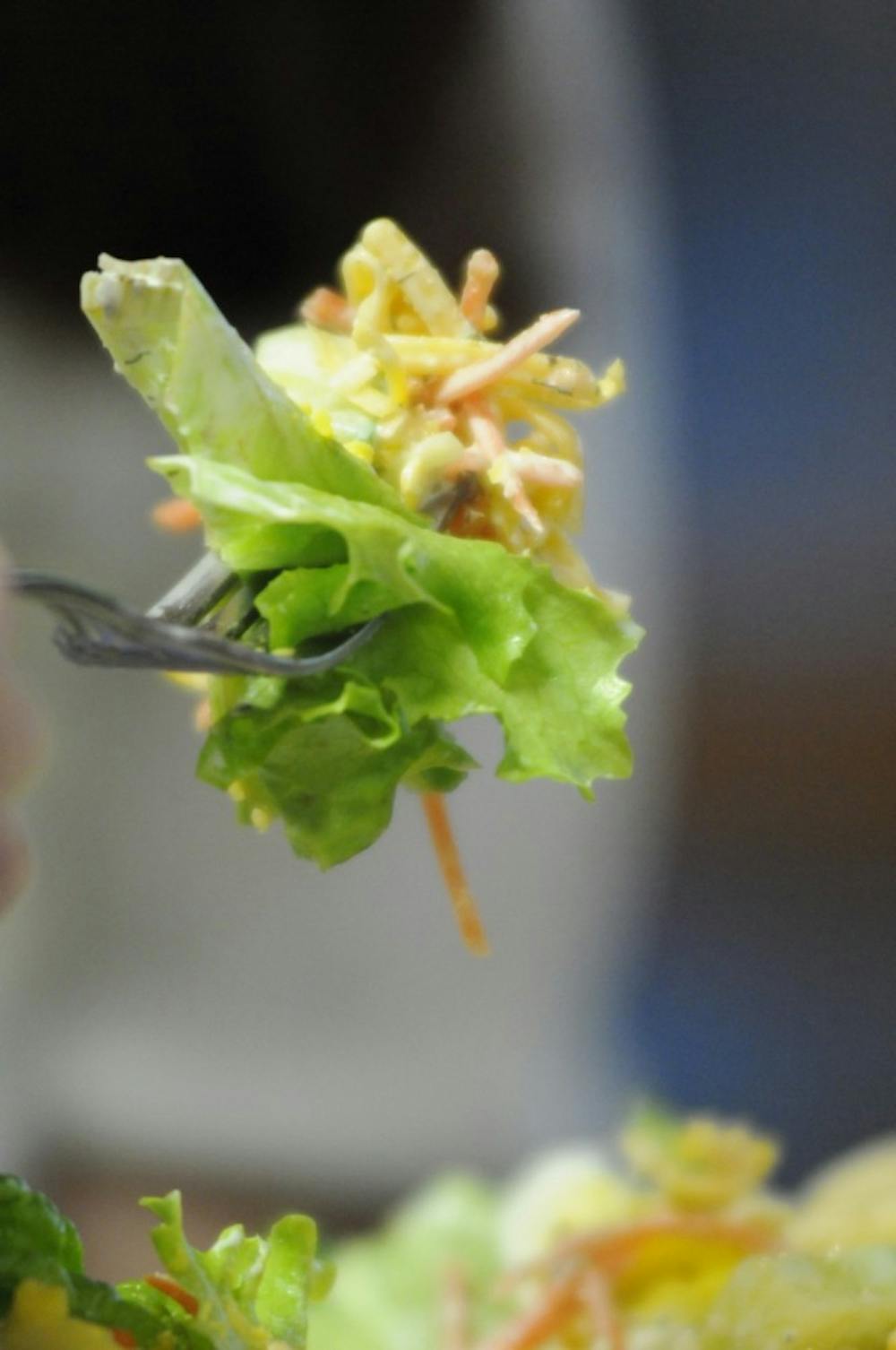On a mild February afternoon, there wasn’t a cloud in the sky, and next to the Truitt Center for Religious Life, the scent of freshly turned earth permeated the air. A handful of students in a variety of environmental studies classes were out in the Elon Community Garden preparing plots for late winter planting.
[quote]Typically Alamance County is a little bit behind some of the more urban counties around, but that's changing right now.[/quote]
Many of these students are taking Garden Studio with Michael Strickland, English lecturer. The class is a combination of practical work and classroom-based knowledge of soil systems and planting. With skills they learn, the students can start a backyard garden themselves. People who do, and make other changes in their diets, are often called locavores.
“A locavore is somebody who chooses to eat only what is grown within a specific geographic region,” said Michelle Ferrier, Elon professor and publisher of LocallyGrownNews.com, a website that provides information about farming and local products. “Some people might say a 100-mile radius, some people might narrow that in terms of a 60-mile radius. It’s choosing, in some cases, not to eat bananas because bananas are not grown in North Carolina.”
The Garden Studio students are, as a whole, not locavores in the strictest sense of the word. But they do eat many of the fresh vegetables produced under their pitchforks, something many Elon students don’t have the opportunity to do .
Senior environmental studies major Graham Gilley said he grew up helping his mother with her backyard garden, so when he found out about the community garden, it was a natural transition.
“A lot of people don’t (eat local) because it is a little more expensive sometimes, but I mean, if you really take a step back and consider the health benefits, the emotional benefits, it’s worth the price,” he said. “So when I can, I try to eat local."
Gilley said he lives off-campus, which makes choosing local foods easier than when he was on the meal plan. But ARAMARK does provide options for students with a meal plan to choose local in dining halls.
“Elon Dining is a proud partner of the North Carolina Ten Percent campaign, (which) asks all of its members to commit to purchasing a minimum of 10 percent of all food locally," said Kate Nelson, marketing manager for Elon Dining Services.
Locally-sourced items are denoted with a green leaf logo that says “local.” These are visible in Acorn Coffee Shop, where all of the pastries and muffins have been made in the nearby area.
“There’s a tremendous interest in (the local food movement) in the area,” Strickland said. “Farmer’s markets are springing up everywhere. Typically Alamance County is a little bit behind some of the more urban counties around us, but that’s changing right now.”
The Elon Community Church’s weekly farmer’s market, which starts in the warmer months and runs until late fall, offers fresh, local food. The Company Shops Co-op in downtown Burlington offers seasonal produce from North Carolina, and Lowes’ Foods, which is based in North Carolina, offers a reasonable selection of area produce.
“Whenever you can buy local, you’re supporting the local economy,” said environmental studies adjunt instructor Jerry Dorsett. “And you’re creating jobs, creating more amenities in the area.”


